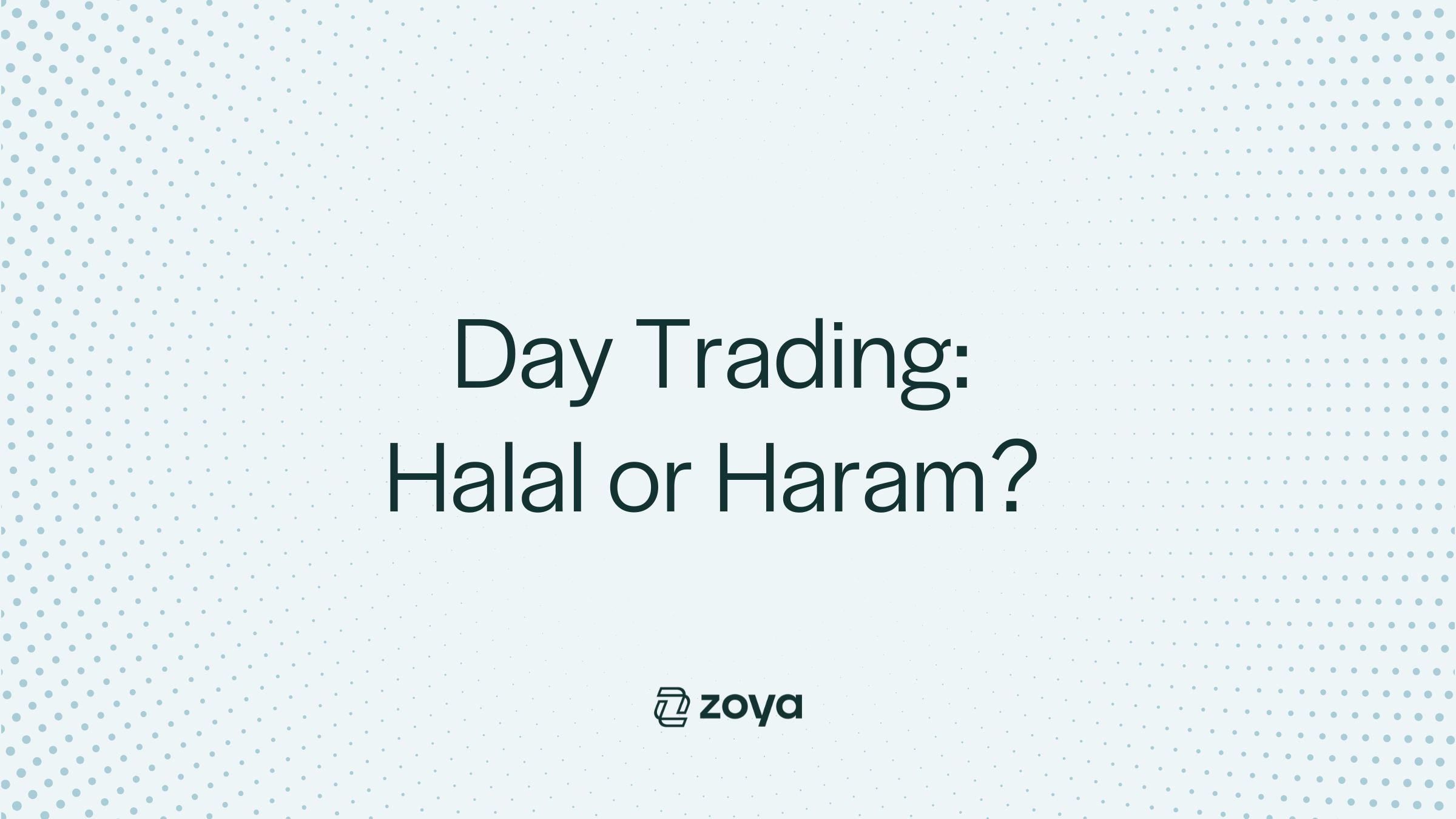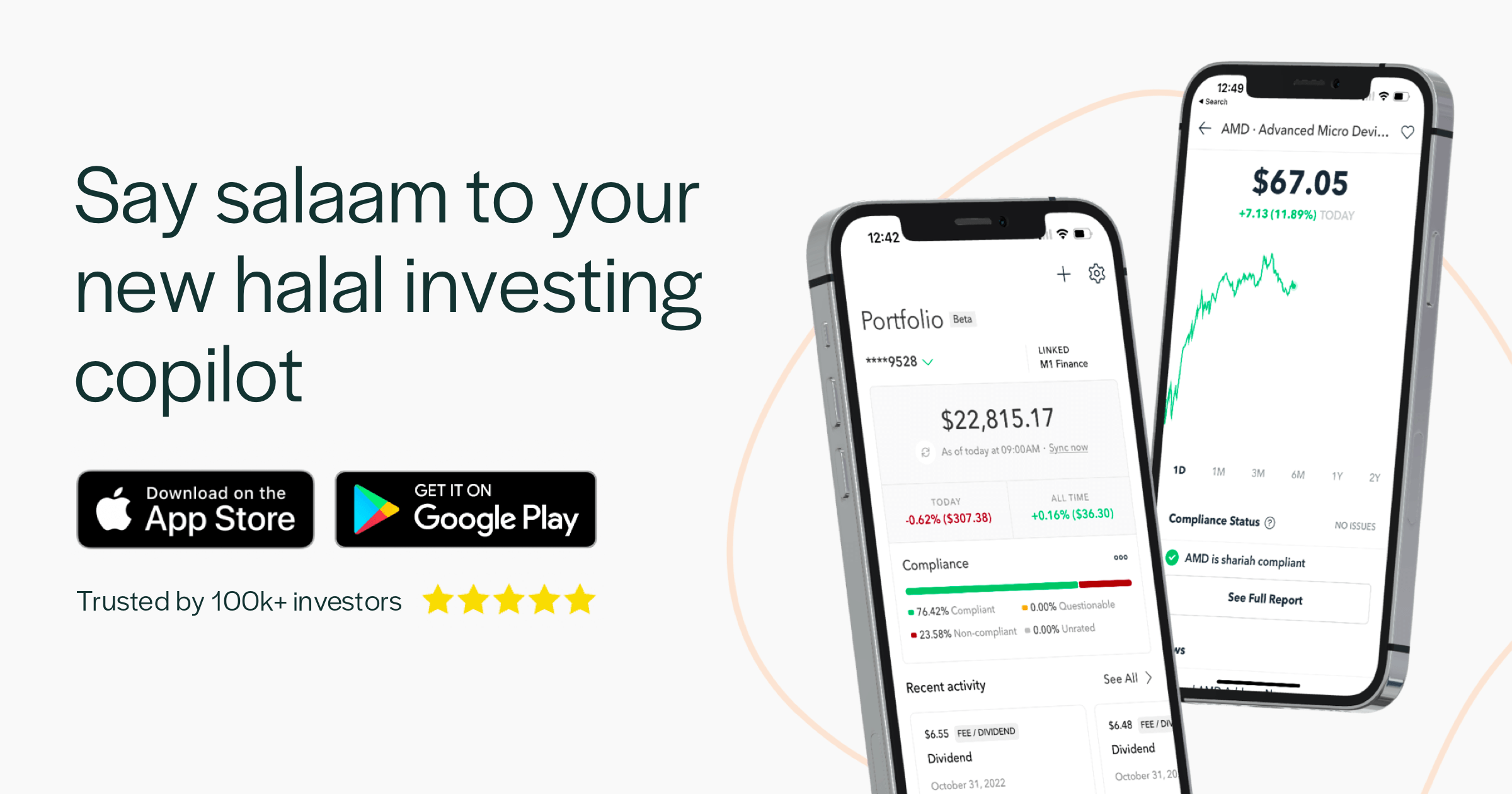Is Day Trading Halal?

Day trading is a popular strategy in modern markets, but is it halal? Muslim investors often ask whether buying and selling stocks within the same day is permissible from an Islamic perspective.
This article explores the key issues at play, how different scholars interpret them, and what practical takeaways you should consider.
Let’s break it down.
What is day trading?
Day trading involves buying and selling stocks within the same trading day, typically to profit from small price movements. Day traders:
- Close all positions before the market closes
- Don't hold stocks overnight
- Often make multiple trades per day
- Focus on technical analysis and short-term price patterns
Example: Sarah buys 100 shares of Apple at $150 at 10 AM and sells them at $152 at 2 PM the same day, making a $200 profit.
Why is day trading controversial?
In Islam, you’re generally not allowed to sell something you don’t own. This is based on a hadith in Sunan al-Tirmidhi narrated by Hakim ibn Hizam, who asked the Prophet Muhammad (peace be upon him):
"O Messenger of Allah, a man comes to me and asks me to sell him something I do not have. Can I buy it from the market and then sell it to him?” The Prophet replied: “Do not sell what you do not possess.”
In traditional trade, ownership and possession are immediate and obvious. You hand over the item, and the buyer now owns it. In modern stock markets, it’s more complicated. When you buy a stock, the transaction doesn’t fully settle until the next business day (this is referred to T+1).
So if you buy and sell within the same day before the stock is officially transferred to your name, have you really owned it?
Is day trading halal or haram?
There isn't a single, universally agreed-upon answer to whether day trading is permissible. Scholars have evaluated the topic based on principles of ownership, possession, and liability, each taking on new dimensions in the modern financial system. Here are the main viewpoints:
Position #1: Day trading is permissible (under conditions)
Some scholars hold the view that day trading can be permissible, provided the following conditions are strictly met:
- The stock itself is Shariah-compliant: The underlying business activities of the company must be halal.
- No leverage or margin trading: You must use your own funds, not borrowed money.
- No short-selling: You cannot sell shares you don't own (by borrowing them).
The reasoning behind this view is that constructive possession (qabd hukmi) and liability transfer once the trade is executed. Even if the stock hasn't officially settled in the back-end systems, from a Shariah perspective, the critical requirement of the buyer being exposed to the market risk and being unable to simply walk away from the trade has been fulfilled. This, they argue, meets the criteria of ownership and liability, which are considered more important than the final act of physical or legal registration in a digital world.
This position is supported by Shariah standards like those from the Accounting and Auditing Organization for Islamic Financial Institutions (AAOIFI). Specifically, section 3/7 in Standard No. 21 (Financial Papers – Shares and Bonds) states:
It is permissible to the buyer of a share to undertake transactions in it by way of sale to another and the like after the completion of the formalities of the sale and the transfer of liability to him even though the final settlement in his favour has not been made.
This clause provides the foundational argument for the permissibility of selling shares prior to final settlement, as long as liability has transferred and the sale contract is complete.
Position #2: Day trading is not permissible
This view takes a stricter approach. Some scholars argue that constructive possession, in the context of an unsettled stock trade, isn't enough to constitute true ownership for the purpose of resale.
They maintain that since shares aren't legally registered under the buyer's name until the next business day (T+1), the day trader doesn't have full and complete ownership at the moment of an intra-day sale. Selling the stock before that formal registration is effectively selling something you don't yet fully own, which would contravene the aforementioned hadith.
This opinion prioritizes the legal transfer and the acquisition of formal shareholder rights (like the right to dividends or to vote, however brief the holding period) as a condition for complete ownership.
Is day trading gambling?
Some say day trading is just like gambling: fast, risky, and based on short-term speculation. But this is an oversimplification.
In Islam, risk is not prohibited in itself. What’s forbidden is excessive, unjustified, or ambiguous risk, especially when it resembles betting.
Day trading can be risky, but it’s not gambling if:
- You're buying actual shares in real, Shariah-compliant businesses.
- You're using your own money (no margin or leverage, which can amplify risk in a way similar to betting with borrowed stakes).
- You're making informed decisions based on some form of analysis, not just guessing or relying on pure luck.
Gambling is a zero-sum game where one person wins only because another loses. Investing, even short-term, involves participation in the value of an underlying asset which can be influenced by broader economic factors.
Does faster settlement change anything?
In May 2024, the U.S. moved from T+2 to T+1 settlement. This means stocks now legally settle in one business day instead of two. This reduces the time gap between trade execution and official ownership, weakening the argument that you’re selling something you don’t yet own.
While this doesn’t eliminate the debate entirely, it lowers the practical risk. And T+0 (same-day settlement) isn’t far off. Some markets, like India and China, have already started moving in that direction. As the industry continues to push for faster clearing, the concerns around ownership timing may become less relevant.
The bottom line
Ultimately, the decision to engage in day trading requires careful consideration of the differing scholarly interpretations of ownership in modern markets. There is no single "yes" or "no" that satisfies all viewpoints.
It's important to ensure any assets traded are Shariah-compliant and that trading practices avoid prohibited elements like leverage or short-selling. Educating yourself on Islamic principles and seeking guidance from a trusted scholar can help in aligning your trading activities with personal conviction, especially as financial markets continue to evolve.

Zoya: Halal Investing App
Zoya makes halal investing easy by helping you build and monitor a shariah compliant investment portfolio with confidence and clarity.